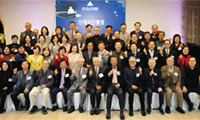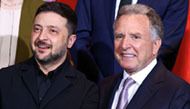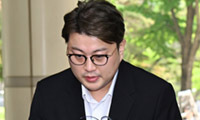▶ DAVID BROOKS
Or, alternately, he can realize that he is now at a moment of liberation. For the past five years he has been inhibited by the need to please donors, to cater to various Congressional constituencies and to play by Washington rules.
But the legislating phase of his presidency is now pretty much over. Over the next few years he will be free to think beyond legislation, beyond fund-raising, beyond the necessities of the day-to-day partisanship. He will have the platform and power of the presidency, but, especially after the midterms, fewer short-term political obligations.
This means he will have the opportunity to build what he himself could have used over the past few years: An Opportunity Coalition. He’ll have the chance to organize bipartisan groups of mayors, business leaders, legislators, activists and donors into permanent alliances and institutions that will formulate, lobby for, fund and promote opportunity and social mobility agendas for decades to come.
There are already signs that President Obama is stepping back to take the long view. In his interviews with David Remnick of The New Yorker, he observed that the president is “essentially a relay swimmer in a river full of rapids.” You are trying to do your leg and pass things along to the next swimmer. As president, he’s been made aware of how little a president can accomplish unless there is organized support from the outside. Obama now has the chance to build that support for future presidents, on the issues that concern him most.
He might start, for example, by scrambling the current political categories. We now have one liberal tradition that believes in using government to enhance equality. We have another conservative tradition that believes in limiting government to enhance freedom. These two traditions have fought to a standstill and prevented Obama from passing much domestic legislation of late.
But there is a third ancient tradition that weaves through American history, geared directly at enhancing opportunity and social mobility. This is the Whig tradition, which begins with people like Henry Clay, Daniel Webster and Abraham Lincoln. This tradition believes in using the power of government to give marginalized Americans the tools to compete in a capitalist economy.
The Whigs fought against the divisive populist Jacksonians. They argued that it is better to help people move between classes than to pit classes against each other. They also transcended our current political divisions.
The Whigs were interventionist in economics while they were traditionalist and family-oriented in their moral and social attitudes. They believed America should step boldly into the industrial age, even as they championed cultural order. The Whigs championed large infrastructure projects and significant public investments, even as they believed in sacred property rights. They believed in expanding immigration along with assimilation and cohesion.
President Obama could travel the country modernizing the Whig impulse, questioning current divisions and eroding the rigid battle lines. More concretely, he could create a group of Simpson-Bowles-type commissions — with legislators, mayors, governors and others brought together to offer concrete proposals on mobility issues from the beginning to the end of the life span:
Is there a way to improve family patterns so disadvantaged young children grow up in more ordered environments? Is there a way to improve Head Start and intelligently expand early childhood education? Is there a way to structure neighborhoods so that teenagers are more likely to thrive? Is there a way to get young men wage subsidies so they are worth marrying? Is there a way to train or provide jobs for unemployed middle-aged workers?
These commissions could issue their reports in the spring of 2016, to make life maximally difficult for the next presidential candidates.
President Obama could also credential a different style of public sector leader. If you are trying to pass legislation, you staff your administration with political operatives. But if you are trying to change the discussion and mobilize the country, you hire and promote social entrepreneurs, people from Ashoka, Teach for America, Opportunity International, the International Justice Mission and the Clinton Global Initiative. Once hired in this White House, these people will be filling senior government jobs for decades to come.
President Obama began his career as an organizer. His mobility agenda floundered because the governing majority he needed to push it forward does not exist. He has the chance to remedy that, to organize, to convene, to build, and to make life a lot easier for the next swimmer in the race.
스마터리빙
more [ 건강]
[ 건강]이제 혈관 건강도 챙기자!
[현대해운]우리 눈에 보이지 않기 때문에 혈관 건강을 챙기는 것은 결코 쉽지 않은데요. 여러분은 혈관 건강을 유지하기 위해 어떤 노력을 하시나요?
 [ 건강]
[ 건강]내 몸이 건강해지는 과일궁합
 [ 라이프]
[ 라이프]벌레야 물럿거라! 천연 해충제 만들기
 [ 건강]
[ 건강]혈압 낮추는데 좋은 식품
[현대해운]혈관 건강은 주로 노화가 진행되면서 지켜야 할 문제라고 인식되어 왔습니다. 최근 생활 패턴과 식생활의 변화로 혈관의 노화 진행이 빨라지고
사람·사람들
more
[송년행사 화보] “ ‘손에 손잡고’ 한 해 마무리… 건강과 행복 기원”
전주고·북중남가주 전주고·북중 총동창회(회장 백규종)의 2025년 정기총회 및 송년회가 지난 14일 LA 작가의 집에서 성황리에 열렸다. 이날…

[송년행사 화보] “한 해를 마무리하며… 화기애애한 송년의 순간들”
LA 러너스클럽LA 러너스클럽(회장 김두병)은 13일 작가의 집에서 80여명의 회원과 가족이 참석한 가운데 송년회를 마쳤다. 2007년 창립된…
[송년행사 화보] “웃음과 감사 가득 ‘훈훈’… …
한국학교총연합회미주한국학교총연합회(회장 이영숙)가 주최한 제43회 장기 근속교사 포상 및 송년의 밤 행사가 140여명의 교사들이 참석한 가운데…
[송년행사 화보] “친구야 반갑다… 선배님들 모두…
경남중고경남중·고등학교 남가주 동창회(회장 예해덕)는 지난 6일 송년회를 열고 동문 및 가족 60여 명이 참석한 가운데 끈끈한 우정을 확인했다…
송년행사 게시판
월남전 참전자회월남전 참전자회 캘리포니아지회(회장 김종식)가 오는 17일(수) 오전 11시 LA 한인타운 해피음악원(2426 W. 8th St…
많이 본 기사
- 백악관 역대 대통령 사진에 악플 단 트럼프… “슬리피 조, 최악”
- ‘돈봉투 수수’ 민주당 전현직 의원들 2심 무죄…1심 뒤집혀
- 트럼프, ‘알코올중독 성격’ 발언한 비서실장에 “계속 직책수행”
- 브라운대 총격사건 닷새째 오리무중…수사 진전 없는듯
- “야, 매운맛 좀 보자”..차승원·추성훈, ‘15년 우정’의 ‘차가네’
- “트럼프 경제 지지도 36%…집권 1·2기 통틀어 최저치”
- 위성락 안보실장, 美에너지장관 면담…우라늄농축 등 논의한듯
- 박나래 빠진 ‘나혼산’ 촬영 현장 어땠나.. “웃음 보장 100% 조합”
- 유급 가족병가, 15명 이상 사업체로 확대
- FBI 2인자 본지노 부국장 사임…법무부와 갈등 여파인 듯
- ESTA(전자허가제) 심사 강화에 관… 1
- 시드니 총기난사범, 인도 출신 이민자…15명 살해 등 혐의 기소
- “비주얼 천재 맞네”..심형탁 아들 하루, 기저귀 광고 현장서 존재감 폭발
- ‘사문서위조’ 국제골프학교 추진 박세리 부친 징역형 집유
- ‘신인감독’ 신드롬 어디까지?..김연경, 또 해냈다
- 네포베이비 잔혹극…부모 살해한 할리우드 금수저에 최대 사형
- 박세리 “선수 시절, 계속 연애..결혼 때문에 헤어져”
- 구글, ‘제미나이3플래시’ 출시… “속도 빠르지만 성능 희생 안해”
- VA 한인 2세, 드라마 주연 맡아
- LA·OC 개스값 하락세 ‘희소식’
- 임창정, 18세 연하 ♥서하얀에 또 반하겠네..우아한 연말 투샷
- 뉴욕한인 팔레스타인 활동가 체포
- 에어 프레미아 취항, 기대 컸나
- 팰팍 최대규모 주상복합단지 들어서나 1
- 자바시장 강도 살인 용의자에 7만5천불 현상금
- “또래보다 젊어 보이는 비결”… ‘이것’ 많이 할수록 노화 2배 늦춘다
- “테슬라 자율주행 과장광고”…美당국 “시정안하면 30일간 영업정지”
- 주말에 LA·OC 전역서 DUI 체크포인트
- 벨라음악재단, 유네스코 협약 20주년 기념 공연
- [연말 피싱 사기 주의보] ‘소셜번호 정지’ 메일 기승
- 김태원, ‘사망설’ 가짜뉴스에 입 열었다.. “그냥 넘기려 했는데 피곤해져”
- 미, 푸틴이 우크라 종전안 거부하면 그림자선단 제재 고려
- 칠레에서 영국까지, 27년을 걷다
- 공화의원 4명 당론 거부…野 ‘건보 보조금 연장안 표결’에 찬성
- ‘음주 뺑소니’ 김호중, 성탄절 특사 물거품.. “죄질 불량” 판단
- 호주서 제자 일가 살해 한인 가석방 없는 종신형 선고
- JP모건체이스, 토큰화된 MMF 첫 출시
- 홍익대학교 동문회 총회 · 송년회
- 한인 은행권 확장경쟁 치열… 직원 2분기 연속 증가
- VA·MD 등 21개주, 우버 상대 소송 제기
- [연말 피싱 사기 주의보] “보이스피싱 이렇게 당한다”
- H마트, 고객감사 경품 이벤트 성황리 종료
- “손흥민, 일찍 이적했으면 MVP 후보” MLS 뒤흔든 이적 ‘첫손’
- 운명의 날…김건희·권성동·윤영호 모두 1월 28일 선고
- 한국에는 사방에 널린 ‘이것’… 몸값 ‘쑥’ 올라 고급 재료로 쓰인다는데, 효능은?
- 페어팩스 60대 남성, 구치소 수감된 날 ‘급사’
- “트럼프 관세… 경기침체·제조업 부활도 없었다”
- [수요 에세이] 어른들의 레고로 불리는 집
- ‘주한미군 일방감축 견제’ 美국방수권법안 상·하원 모두 통과
- [송년행사 화보] “ ‘손에 손잡고’ 한 해 마무리… 건강과 행복 기원”
1/5지식톡

-
 ☝️해외에서도 가능한 한국어 선생님…
0
☝️해외에서도 가능한 한국어 선생님…
0이 영상 하나면 충분합니다!♥️상담신청문의♥️☝️ 문의 폭주로 '선착순 상담'만 진행합니다.☎️ : 02-6213-9094✨카카오톡ID : @GOODEDU77 (@골뱅이 꼭 붙여주셔야합니다…
-
 테슬라 자동차 시트커버 장착
0
테슬라 자동차 시트커버 장착
0테슬라 시트커버, 사놓고 아직 못 씌우셨죠?장착이 생각보다 쉽지 않습니다.20년 경력 전문가에게 맡기세요 — 깔끔하고 딱 맞게 장착해드립니다!장착비용:앞좌석: $40뒷좌석: $60앞·뒷좌석 …
-
 식당용 부탄가스
0
식당용 부탄가스
0식당용 부탄가스 홀세일 합니다 로스앤젤레스 다운타운 픽업 가능 안녕 하세요?강아지 & 고양이 모든 애완동물 / 반려동물 식품 & 모든 애완동물/반려동물 관련 제품들 전문적으로 홀세일/취급하는 회사 입니다 100% …
-
 ACSL 국제 컴퓨터 과학 대회, …
0
ACSL 국제 컴퓨터 과학 대회, …
0웹사이트 : www.eduspot.co.kr 카카오톡 상담하기 : https://pf.kakao.com/_BEQWxb블로그 : https://blog.naver.com/eduspotmain안녕하세요, 에듀스팟입니다…
-
 바디프렌드 안마의자 창고 리퍼브 세…
0
바디프렌드 안마의자 창고 리퍼브 세…
0거의 새제품급 리퍼브 안마의자 대방출 한다고 합니다!8월 23일(토)…24일(일) 단 이틀!특가 판매가Famille: $500 ~ $1,000Falcon: $1,500 ~ $2,500픽업 & 배송직접 픽업 가능LA…
케이타운 1번가
오피니언
 정숙희 논설위원
정숙희 논설위원칠레에서 영국까지, 27년을 걷다
 마크 A. 시쎈 / 워싱턴포스트 칼럼니스트
마크 A. 시쎈 / 워싱턴포스트 칼럼니스트 [마크 A. 시쎈 칼럼] MAGA와 ‘힘에 바탕한 외교정책’
 김동찬 시민참여센터 대표
김동찬 시민참여센터 대표 [미국은 지금] 위기의 시대, 사회안전망은 최후의 방어선이다
 이현숙 수필문학가협회 이사장
이현숙 수필문학가협회 이사장 [수요 에세이] 어른들의 레고로 불리는 집
 한영일 / 서울경제 논설위원
한영일 / 서울경제 논설위원[만화경] 애피타이저가 ‘한끼’ 인 시대
 노세희 부국장대우·사회부장
노세희 부국장대우·사회부장 커뮤니티 재단과 한인사회의 미래
 민경훈 논설위원
민경훈 논설위원햄닛과 햄릿, 그 죽음에 대한 명상
 한형석 사회부 부장대우
한형석 사회부 부장대우 연말, 사기범들의 최대 성수기
 정유환 수필가
정유환 수필가 [화요칼럼] 크리스마스 트리의 추억
1/3지사별 뉴스

팰팍 최대규모 주상복합단지 들어서나
뉴저지 팰리세이즈팍 사상 최대 규모의 초고층 주상복합단지가 한인 개발업체에 의해 추진되고 있는 것으로 알려지면서 관심이 집중되고 있다. 팰팍…
연말 1억2천만명 이동

에어 프레미아 취항, 기대 컸나
에어 프레미아의 워싱턴 덜레스 국제공항과 인천국제공항간 취항이 확정된 가운데(본보 15일자 A1면), 에어 프레미아 항공권 가격이 당초 기대에…
VA·MD 등 21개주, 우버 상대 소송 제기

캘리포니아 플라스틱백 퇴출 앞두고… 대형 체인, 종이봉투로 속속 전환
내년 1월 1일부터 캘리포니아 전역의 마켓과 식료품점에서 플라스틱 봉투가 완전히 사라진다. 개빈 뉴섬 주지사가 서명한 SB 1053 법안이 본…
‘우미노시즈쿠 후코이단’ 감사 이벤트

오늘 하루 이 창 열지 않음 닫기 



















































.png)


댓글 안에 당신의 성숙함도 담아 주세요.
'오늘의 한마디'는 기사에 대하여 자신의 생각을 말하고 남의 생각을 들으며 서로 다양한 의견을 나누는 공간입니다. 그러나 간혹 불건전한 내용을 올리시는 분들이 계셔서 건전한 인터넷문화 정착을 위해 아래와 같은 운영원칙을 적용합니다.
자체 모니터링을 통해 아래에 해당하는 내용이 포함된 댓글이 발견되면 예고없이 삭제 조치를 하겠습니다.
불건전한 댓글을 올리거나, 이름에 비속어 및 상대방의 불쾌감을 주는 단어를 사용, 유명인 또는 특정 일반인을 사칭하는 경우 이용에 대한 차단 제재를 받을 수 있습니다. 차단될 경우, 일주일간 댓글을 달수 없게 됩니다.
명예훼손, 개인정보 유출, 욕설 등 법률에 위반되는 댓글은 관계 법령에 의거 민형사상 처벌을 받을 수 있으니 이용에 주의를 부탁드립니다.
Close
x